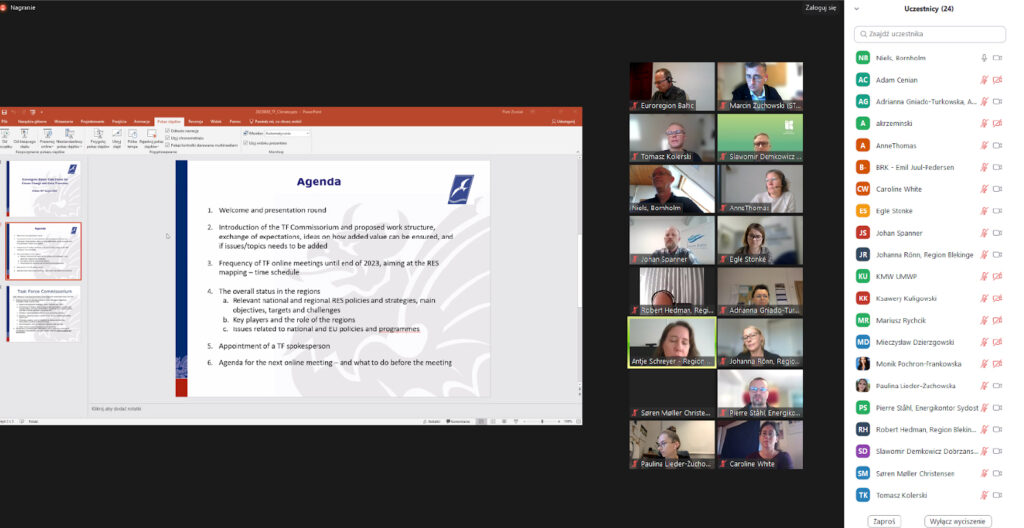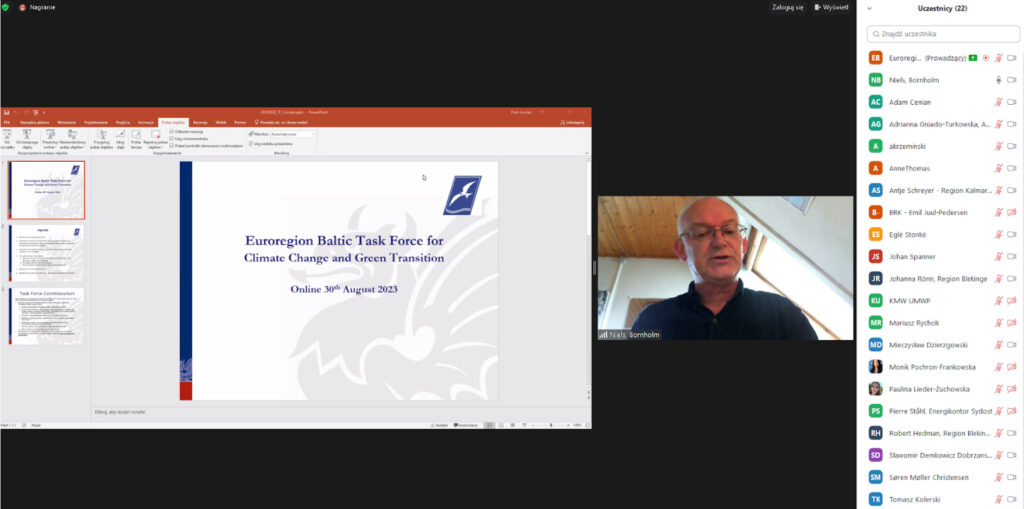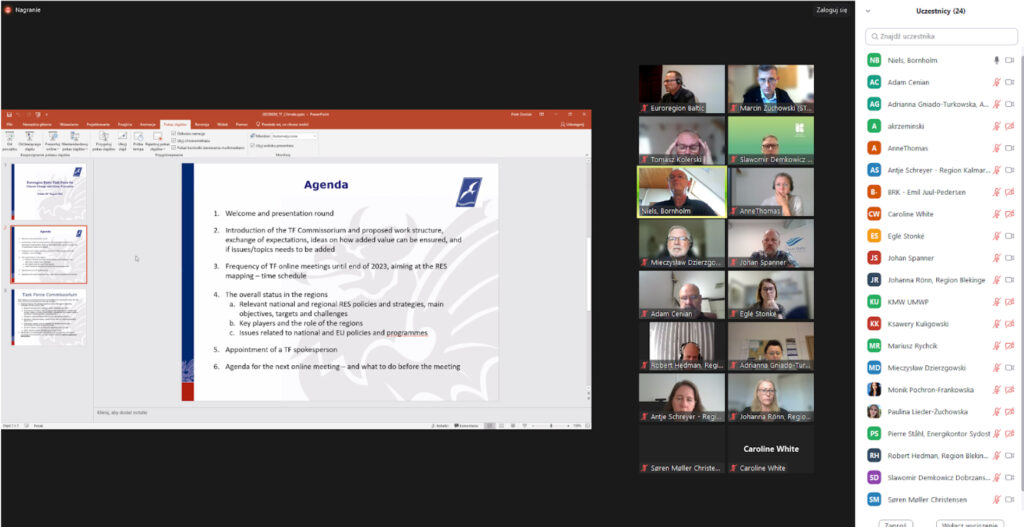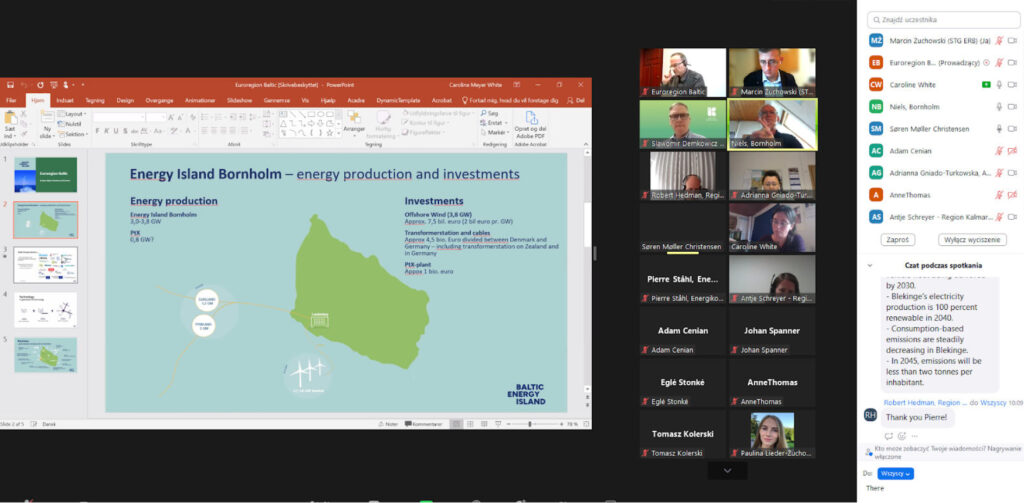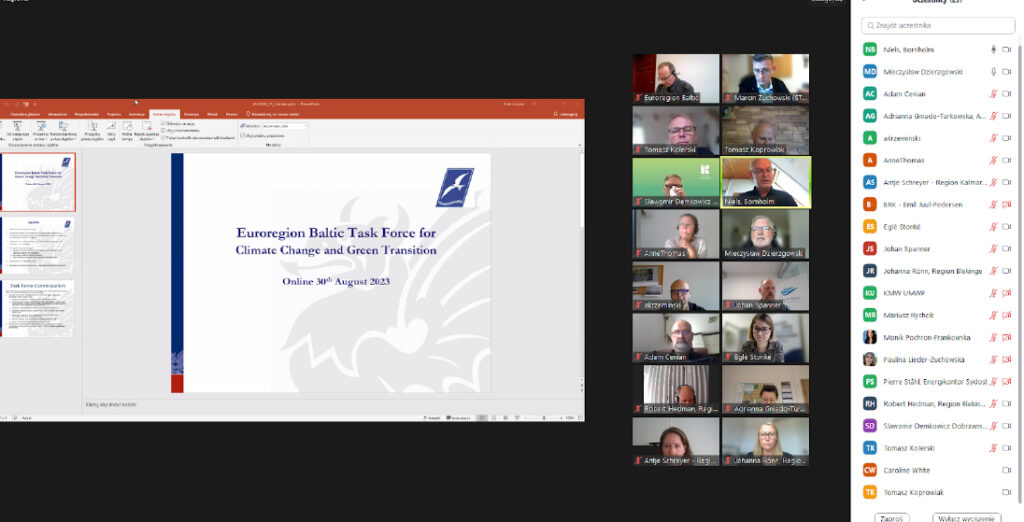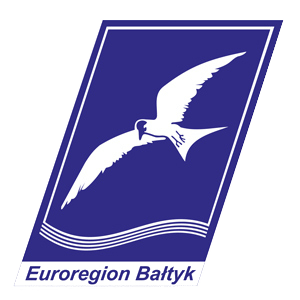Informacje z Euroregionu Bałtyk
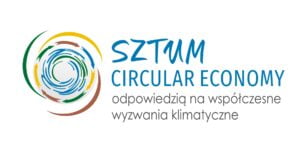
Sztum Circular Economytl-ne News English pll_64ff127e7ff0b Sztum Circular Economy
Baltic Task Force - Climate Change and Green Transition
On 30 August 2023, the initiating meeting of the Baltic Task Force - Climate Change and Green Transition took place. The group in its assumptions refers to the activities of the Shtum Circular Economy project and brings together specialists and experts in the field of renewable energy sources from 4 countries of the Baltic Sea. Today's meeting is a very important event for our Association. After many efforts to establish a formal group of stakeholders in climate change prevention, we have just met to give the Group a real dimension so that it can work substantively and effectively.

It is worth mentioning that the above Group was born as a result of the efforts of Association of Polish Communes Euroregion Baltic, which started during a joint conference with members of the Euroregion Baltic network, dedicated to the circular economy. The conference - Annual Euroregion Baltic and Sztum Circular Economy Stakeholder Forum - Joint Action - was held on 8 and 9 December 2022 in Olsztyn. Representatives of almost all Euroregion member regions attended. The Forum was supported by the thematic scope of the Sztum Circular Economy project, while involving many experts in the field of climate change mitigation as well as STG ERB project partners in the discussion. During the Forum, participants had the opportunity to listen to a methodologically and theoretically rich lecture on the essence of the circular economy and its impact on the environment, ways to prevent drastic climate change and the negative environmental consequences of this process. The thematic sessions and panels that took place, at this important time for the establishment of the Task Force, dealt with topics such as the circular economy in practice and energy and the circular economy - renewable energy sources as a catalyst for the introduction of the circular economy model. After fruitful discussions, those gathered were in no doubt that the establishment of a Working Group dedicated to tackling climate change was essential. At the same time, the Forum became a meeting of the newly formed Task Force - Circular Economy Task Force, bringing together thematic experts in the field of countering climate change. The ERB Bureau assumed the role of the responsible body of the Group.
The Task Force's working formula will be encapsulated in two themes. First, it will be the mapping of current and planned initiatives in the ERB regions concerning renewable energy sources. This will include regional development strategies, plans, roadmaps, etc. Among other things, the group will work on answering questions such as: how to share and map summaries of existing studies and research relevant to the task force, how to involve citizens, climate NGOs, organisations from the business, education and research sectors and labour market operators, what initiatives should be launched on future infrastructure, labour market or technological aspects, security aspects and cyber security. Secondly, the work will address the identification of potential joint ERB efforts, such as lobbying, knowledge and experience sharing and joint project initiatives, such as the identification of projects and participants.
In summary, the areas of interest identified by the Task Force participants are: high-cost energy infrastructure connecting countries and regions; soft measures focusing on education and awareness; lobbying for legislative and policy changes and their impact on local strategies; external measures in terms of co-financing of local activities and pilot tests; workforce issues and the bioeconomy area.
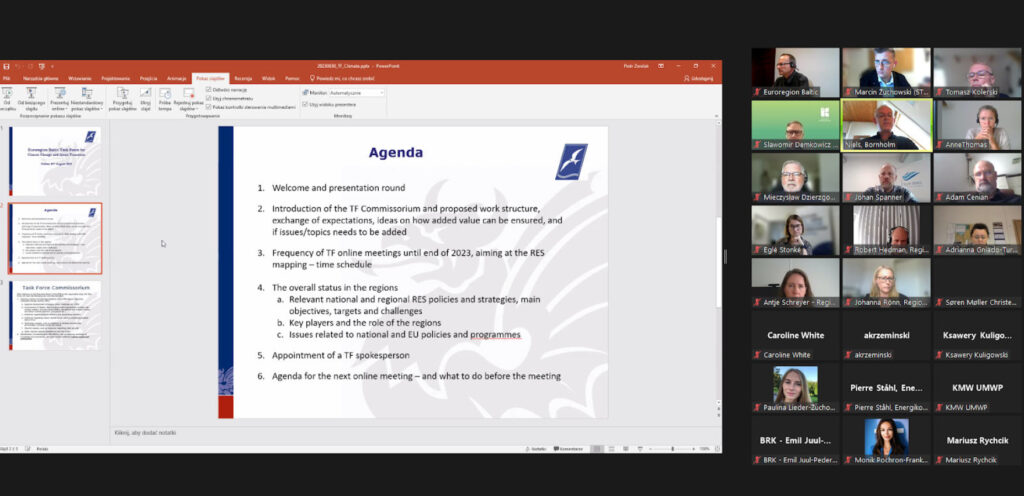
It was agreed that the Task Force will meet in an online format, regularly every other month, for two-hour meetings until joint new initiatives are developed. The next step in the collaboration will then take place and it will be possible to organise a joint conference of the SCE project members, who were the spark that initiated the development of the Task Force. While the meetings will be the only continuation and delineation of further tasks, the actual work will be done between the members of the group, based on the expertise of specialists.
The division of responsibilities of the different Task Force entities has also been agreed. In general, as mentioned earlier, the Task Group will focus on substantive work and the creation and mapping of initiatives that can be the basis for joint projects in the Baltic Sea area, while the ERB Secretariats will handle the technical service, and the Association of Polish Municipalities Euroregion Baltic will draw up the minutes. The ERB STG will at the same time, together with the ERB regional secretariat (based in Bornholm), be responsible for monitoring the meetings, collecting and disseminating documents etc. and informing the SCE project members about new opportunities to get involved in new initiatives.
The Task Force members will share information on the mapping process, exchange knowledge and experiences and discuss possible joint activities - such as contacting key EU institutions, lobbying activities or ideas for joint projects.
The next online meeting of the Euroregion Baltic Task Force - Climate Change and Green Transition is scheduled for 22 September 2023, as a mapping meeting. It will be an opportunity to meet specialists, regional secretariats of the BSR countries and their representatives and get involved in the work of the group.
